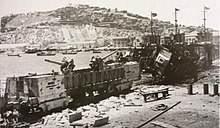
For Whom the Bell Tolls is a novel by Ernest Hemingway published in 1940. It tells the story of Robert Jordan, a young American volunteer attached to a Republican guerrilla unit during the Spanish Civil War. As a dynamiter, he is assigned to blow up a bridge during an attack on the city of Segovia.

John Richard Hersey was an American writer and journalist. He is considered one of the earliest practitioners of the so-called New Journalism, in which storytelling techniques of fiction are adapted to non-fiction reportage. In 1999, Hiroshima, Hersey's account of the aftermath of the atomic bomb dropped on Hiroshima, Japan, was adjudged the finest work of American journalism of the 20th century by a 36-member panel associated with New York University's journalism department.

Giacomo Matteotti was an Italian socialist politician. On 30 May 1924, he openly spoke in the Italian Parliament alleging the Italian fascists committed fraud in the 1924 Italian general election, and denounced the violence they used to gain votes. Eleven days later, he was kidnapped and killed by Fascists.
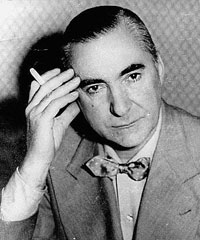
Curzio Malaparte, born Kurt Erich Suckert, was an Italian writer, filmmaker, war correspondent and diplomat. Malaparte is best known outside Italy due to his works Kaputt (1944) and The Skin (1949). The former is a semi-fictionalised account of the Eastern Front during the Second World War and the latter is an account focusing on morality in the immediate post-war period of Naples.
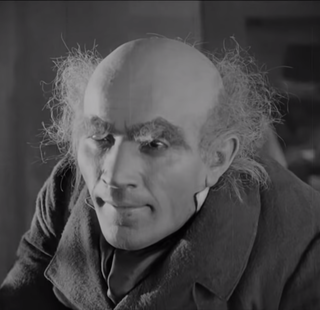
Alexander Granach was a German-Austrian actor in the 1920s and 1930s who emigrated to the United States in 1938.

Licata, formerly also Alicata, is a city and comune located on the south coast of Sicily, at the mouth of the Salso River, about midway between Agrigento and Gela. It is a major seaport developed at the turn of the twentieth century, shipping sulphur, the refining of which has made Licata the largest European exporting centre, and asphalt, and at times shipping cheese.
The story of Damon and Pythias is a legend in Greek historic writings illustrating the Pythagorean ideal of friendship. Pythias is accused of and charged with plotting against the tyrannical Dionysius I of Syracuse. Pythias requests of Dionysius to be allowed to settle his affairs. Dionysius agrees, on the condition that Pythias' friend, Damon, be held hostage and, should Pythias not return, be executed in his stead. When Pythias returns, Dionysius, amazed by the love and trust in their friendship, frees them both.
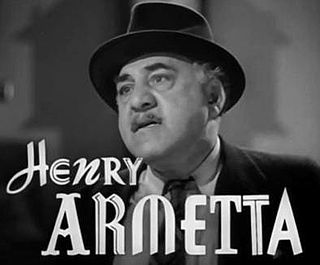
Henry Armetta was an American character actor who appeared in at least 150 American films, beginning in silent movies. His last film was released posthumously in 1946, the year after his death.

The Allied Military Government of Occupied Territories was the form of military rule administered by Allied forces during and after World War II within European territories they occupied.
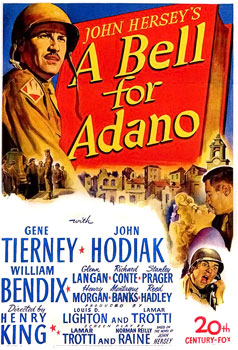
A Bell for Adano is a 1945 American war film directed by Henry King and starring John Hodiak and Gene Tierney. It was adapted from the 1944 novel of the same title by John Hersey, which won the Pulitzer Prize for fiction in 1945. In his review of the film for The New York Times, Bosley Crowther wrote, "... this easily vulnerable picture, which came to the Music Hall yesterday, is almost a perfect picturization of Mr. Hersey's book."

Murray Hamilton was an American stage, screen and television character actor who appeared in such films as Anatomy of a Murder, The Hustler, The Graduate, Jaws and The Amityville Horror.

The Armistice of Cassibile was an armistice that was signed on 3 September 1943 between Italy and the US and UK during World War II. It was made public five days later.
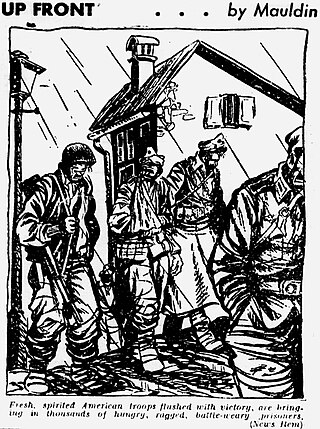
The following are the Pulitzer Prizes for 1945.

Ford Star Jubilee is an American anthology series that originally aired monthly on Saturday nights on CBS at 9:30 P.M., E.S.T. from September 24, 1955, to November 3, 1956,. The series was approximately 90 minutes long, broadcast in black-and-white and color, and was typically telecast live. Ford Star Jubilee was sponsored by the Ford Motor Company.

Benito Amilcare Andrea Mussolini was an Italian dictator who founded and led the National Fascist Party (PNF). He was Prime Minister of Italy from the March on Rome in 1922 until his deposition in 1943, as well as Duce of Italian fascism from the establishment of the Italian Fasces of Combat in 1919 until his summary execution in 1945 by Italian partisans. As dictator of Italy and principal founder of fascism, Mussolini inspired and supported the international spread of fascist movements during the inter-war period.
The Last Chance is a 1945 Swiss war film directed by Leopold Lindtberg. It was entered into the 1946 Cannes Film Festival and won the Grand Prize of the Festival. The film was selected for screening as part of the Cannes Classics section at the 2016 Cannes Film Festival.

The Italian racial laws, otherwise referred to as the Racial Laws, were a series of laws promulgated by the government of Benito Mussolini in Fascist Italy from 1938 to 1944 in order to enforce racial discrimination and segregation in the Kingdom of Italy. The main victims of the Racial Laws were Italian Jews and the African inhabitants of the Italian Empire.

William Edmunds was an Italian-American stage and screen character actor, typically playing roles with heavy accents, most notable as Mr. Giuseppe Martini in It's a Wonderful Life.

Terzilio Cardinali (1913–1944) was an Italian fighter known for his role in Albanian resistance.
The fall of the Fascist regime in Italy, also known in Italy as 25 Luglio, came as a result of parallel plots led respectively by Count Dino Grandi and King Victor Emmanuel III during the spring and summer of 1943, culminating with a successful vote of no confidence against the Prime Minister Benito Mussolini at the meeting of the Grand Council of Fascism on 24–25 July 1943. As a result, a new government was established, putting an end to the 21 years of Fascist rule in the Kingdom of Italy, and Mussolini was placed under arrest.

